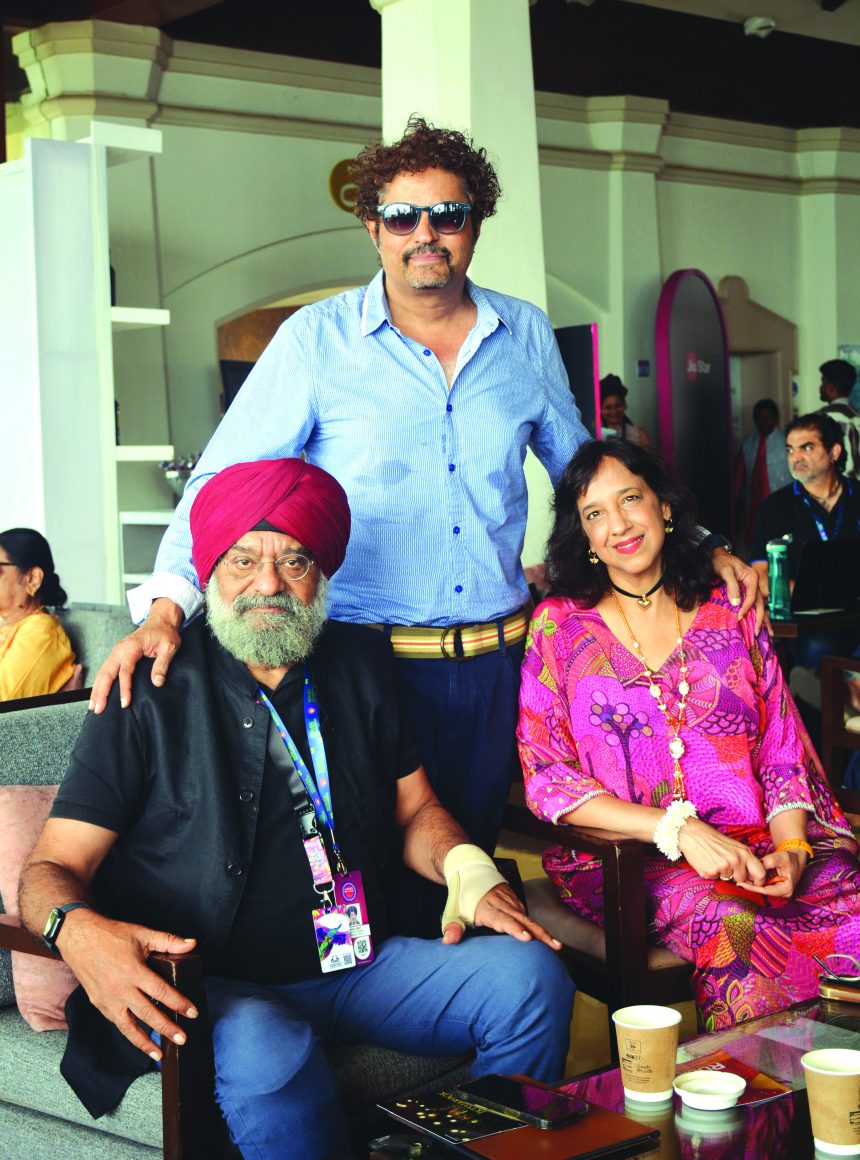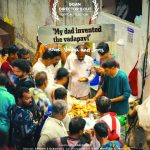‘Lala & Poppy’, the third dimension
RAMNATH N. PAI RAIKAR
What prompted you to make
‘Lala & Poppy’?
Around seven-eight years ago, I had an idea where I wondered what would happen if a man is transitioned to become a woman and meets a woman who is transitioned to become a man. And then they genuinely fall in love. I eventually wrote many drafts of the script and made a point to research a lot as also meet different people from the (LGBT) community, and get to know what drives them or motivates them. I was lucky that last year, at this very festival venue, I met Bobby Bedi and he said, “Let’s make it”. Finally, we made it in just six months.
For the lead artistes, I deliberately searched within the community. It was very important to have representation. I did not want actors playing the parts. My two buzzword were “Go authentic, go empathetic”.
Film producer Bobby Bedi has made films like ‘Bandit Queen’ and ‘Fire’ in the past. How did you convince him?
I don’t think I have to convince anybody. The work should do its own talking. So the script must have done it. He read the script, and obviously saw some value in it as a story which has not been told frankly by anybody anywhere, before. When he agreed to do it, I was very excited.
You have shot the film in Mumbai, which itself has a character. Tell us about it.
I was born and brought up in Mumbai. So I knew the city very well. In fact, when I was writing the script, I had set it within one kilometre radius of my office. We didn’t have to go beyond that. The character of the space is very much the character from within the film. It’s a neighbourhood called Khar Danda and we basically shot the film there. It’s primarily not a ‘basti’ (settlement) but a ‘gaothan’ (village site). People have been living there peacefully for 20-25 years. It’s in fact, a small fishing village that is literally on the water.
What is your opinion about screening films at the film festivals?
It’s very important for us. It also makes sense because we started the film here in Goa. So it’s a circle for us. It’s also very rare to complete a film so fast. I am very happy, and excited to be part of this festival.
There is considerable amount of time between your films. Are you a slow and methodical filmmaker?
I would love to make a movie every year. However, it’s not that easy to make a movie anymore, and also it’s not easy to make this kind of movie. If I just had a (popular) actor, I would have exhibited him and the money would come, without anyone reading the script. This film is however a script-driven and a story-driven film. Such films are always harder to make.
What are your future projects? Are you interested in OTT platforms?
Now I don’t see the be-all and end-all of anything, anymore, in the film industry. More people are watching stuff at home today. Screens are also getting bigger and bigger as people are comfortable watching on Netflix and Amazon. So why wouldn’t one want to work
for OTT?
Have you noticed substantial changes in the filmmaking field since you directed your first film exactly 30 years ago? Absolutely! It’s a whole different ecosystem now. It’s a different world altogether. In 1997, I was running around with a bound English script called, ‘Bombay Boys’. There were no multiplexes then. Only Bollywood existed, no streaming platforms. In that sense it was the Wild West. It was easier because nobody asked any questions, no one read the script, except the actors. In brief, there was lot of freedom in filmmaking. Today, you don’t have to sell thousand seats in theatres you can sell only 200 seats in a multiplex. Audiences too are far more exposed to cinema.RAMNATH N. PAI RAIKAR
What prompted you to make
‘Lala & Poppy’?
Around seven-eight years ago, I had an idea where I wondered what would happen if a man is transitioned to become a woman and meets a woman who is transitioned to become a man. And then they genuinely fall in love. I eventually wrote many drafts of the script and made a point to research a lot as also meet different people from the (LGBT) community, and get to know what drives them or motivates them. I was lucky that last year, at this very festival venue, I met Bobby Bedi and he said, “Let’s make it”. Finally, we made it in just six months.
For the lead artistes, I deliberately searched within the community. It was very important to have representation. I did not want actors playing the parts. My two buzzword were “Go authentic, go empathetic”.
Film producer Bobby Bedi has made films like ‘Bandit Queen’ and ‘Fire’ in the past. How did you convince him?
I don’t think I have to convince anybody. The work should do its own talking. So the script must have done it. He read the script, and obviously saw some value in it as a story which has not been told frankly by anybody anywhere, before. When he agreed to do it, I was very excited.
You have shot the film in Mumbai, which itself has a character. Tell us about it.
I was born and brought up in Mumbai. So I knew the city very well. In fact, when I was writing the script, I had set it within one kilometre radius of my office. We didn’t have to go beyond that. The character of the space is very much the character from within the film. It’s a neighbourhood called Khar Danda and we basically shot the film there. It’s primarily not a ‘basti’ (settlement) but a ‘gaothan’ (village site). People have been living there peacefully for 20-25 years. It’s in fact, a small fishing village that is literally on the water.
What is your opinion about screening films at the film festivals?
It’s very important for us. It also makes sense because we started the film here in Goa. So it’s a circle for us. It’s also very rare to complete a film so fast. I am very happy, and excited to be part of this festival.
There is considerable amount of time between your films. Are you a slow and methodical filmmaker?
I would love to make a movie every year. However, it’s not that easy to make a movie anymore, and also it’s not easy to make this kind of movie. If I just had a (popular) actor, I would have exhibited him and the money would come, without anyone reading the script. This film is however a script-driven and a story-driven film. Such films are always harder to make.
What are your future projects? Are you interested in OTT platforms?
Now I don’t see the be-all and end-all of anything, anymore, in the film industry. More people are watching stuff at home today. Screens are also getting bigger and bigger as people are comfortable watching on Netflix and Amazon. So why wouldn’t one want to work
for OTT?
Have you noticed substantial changes in the filmmaking field since you directed your first film exactly 30 years ago? Absolutely! It’s a whole different ecosystem now. It’s a different world altogether. In 1997, I was running around with a bound English script called, ‘Bombay Boys’. There were no multiplexes then. Only Bollywood existed, no streaming platforms. In that sense it was the Wild West. It was easier because nobody asked any questions, no one read the script, except the actors. In brief, there was lot of freedom in filmmaking. Today, you don’t have to sell thousand seats in theatres you can sell only 200 seats in a multiplex. Audiences too are far more exposed to cinema.





